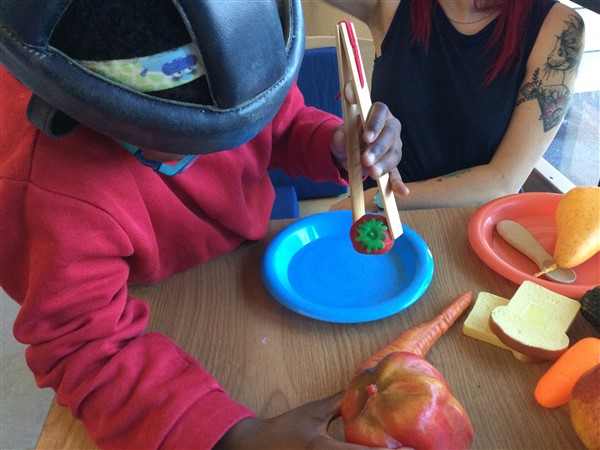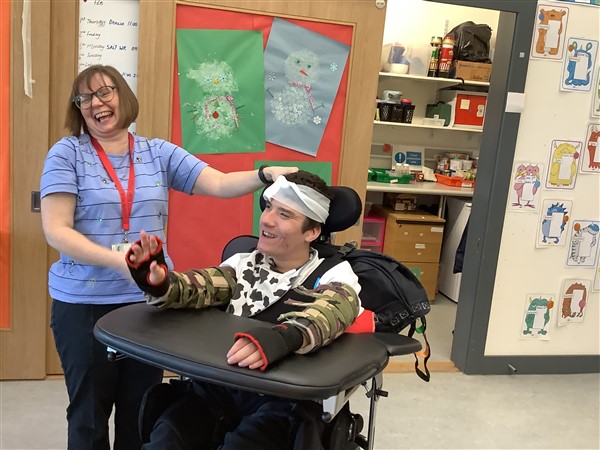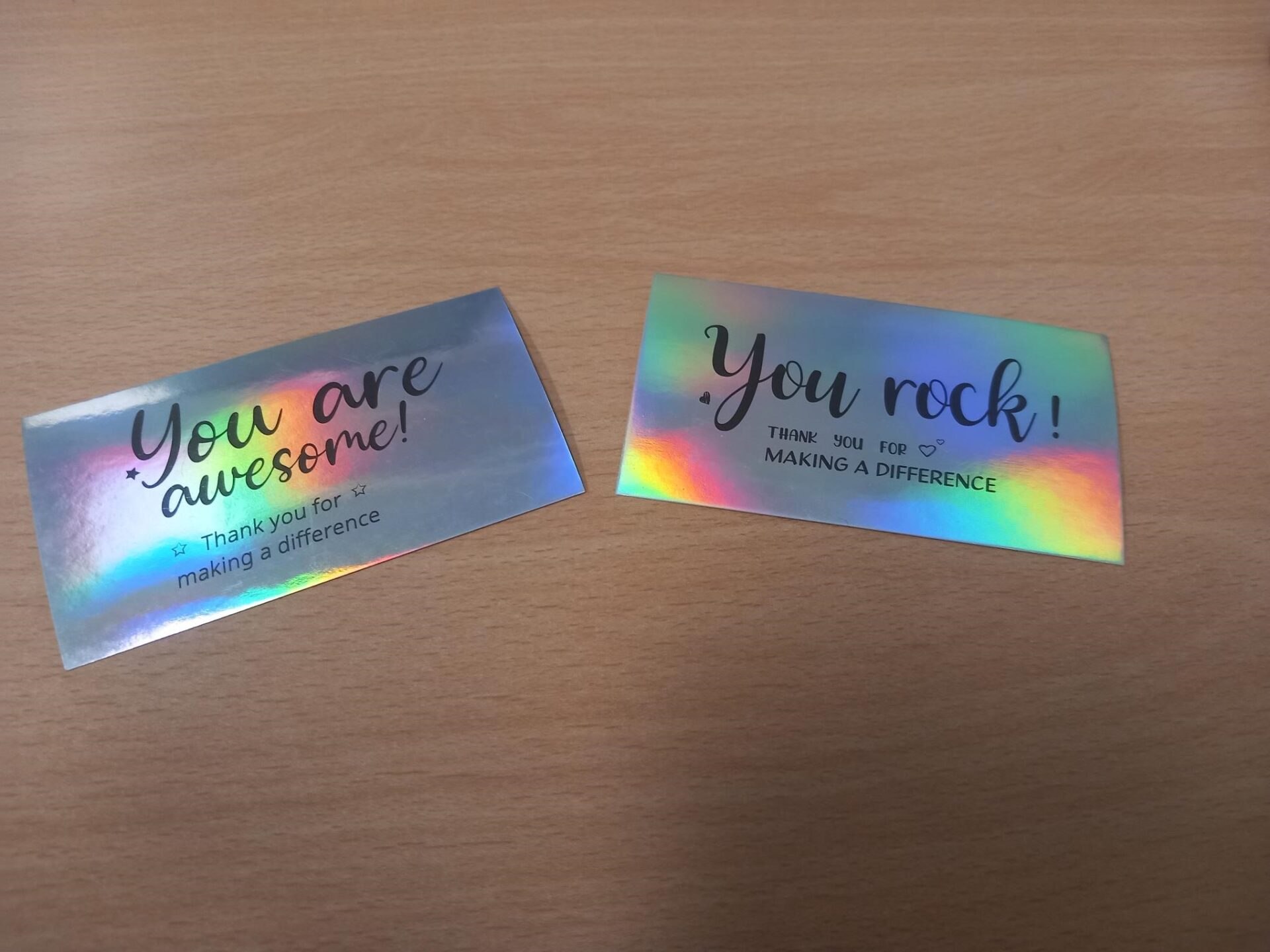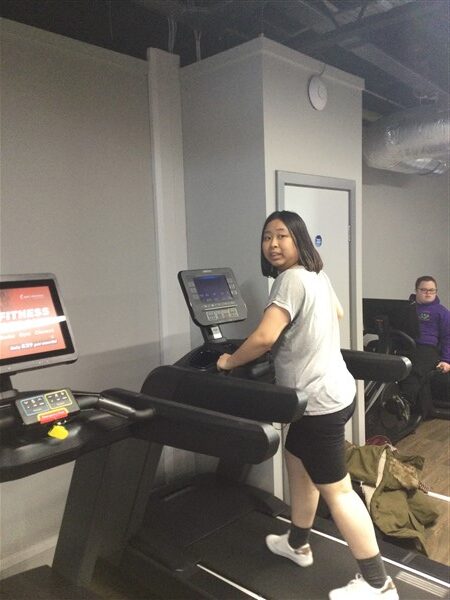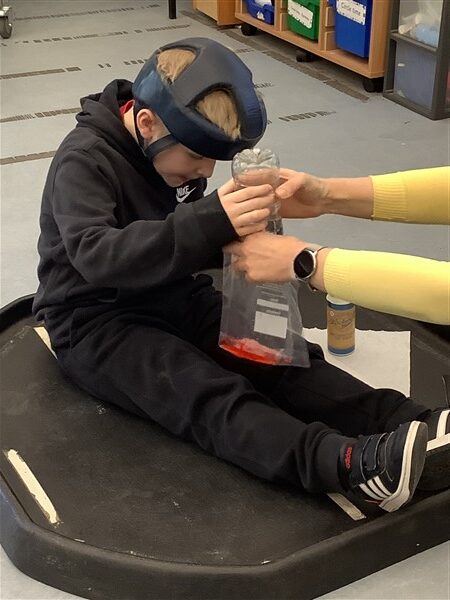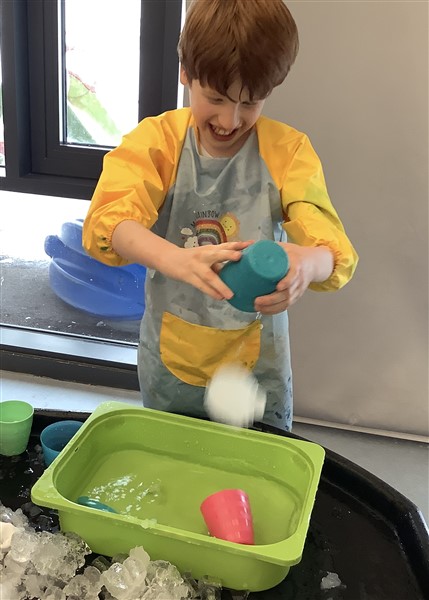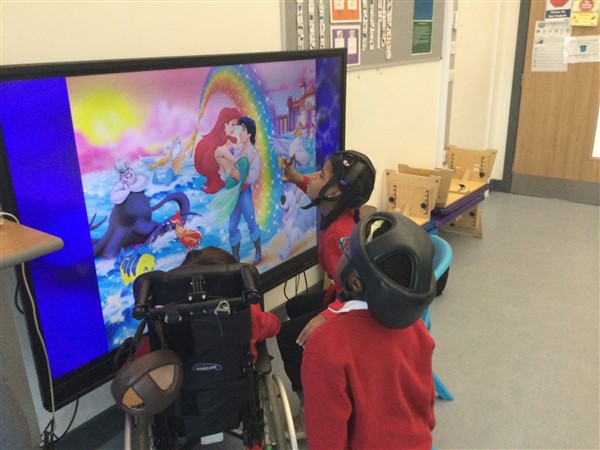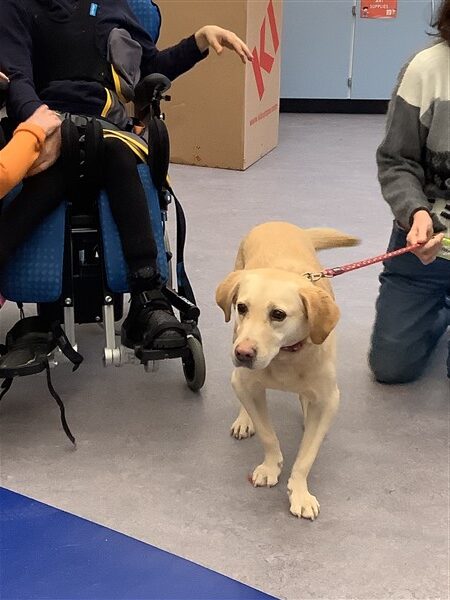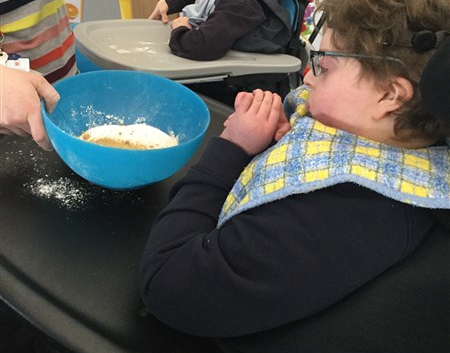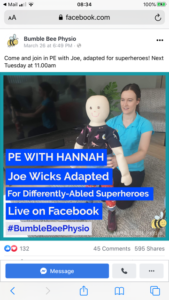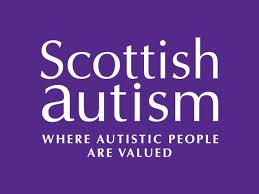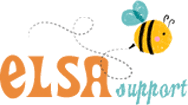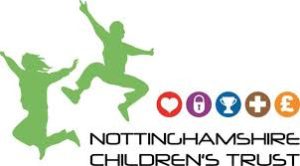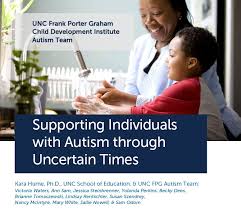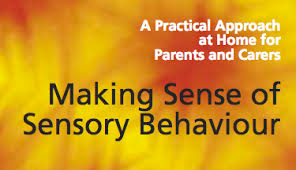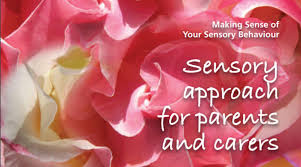School Closure Activities for Room 15 – Week Two
Below are some ideas for families wanting to do “school” activities with their children – if any of these ideas look good to you, give them a go! Equally, if this isn’t what your child is needing just now please don’t put pressure on yourself or them to complete this. It’s also great to take more time on Week One’s activities if your child is benefiting from those.
Information about how to do each activity is underneath. Let me know if you have any particular learning requests for future weeks.
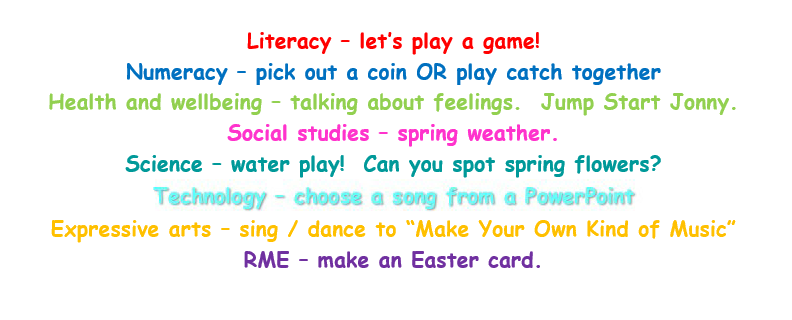
Literacy – Let’s play a game! You can play any game you have at home, but I’m also sending to families in Class 15 a simple snap / memory game you can use at home too if you’d prefer.
How does this help build literacy skills? We learn how to interact in a social situation (playing with others), build the language of turn-taking (“my turn” “your turn”) and encourage spontaneous communication related to the game. Can you copy any of the signs? Can you use your communication system to share communication?
I’ve popped together a video on how to use communication devices / core vocabulary when playing a game here: https://bit.ly/3bz6ZZY
Numeracy and mathematics – If last week you managed to match two coins of the “same” value, this week we can try to make it trickier! Choose one coin (I’d suggest a £1 coin – it’s a helpful coin to recognise when doing shopping, however any coin will do). You’ll need two or more of your chosen coin – mix the coin amongst other coins (start with a small group first), keeping one aside to show your child. Show your child the coin and encourage them to repeat what it is called (using their communication device as applicable). Ask them to find that coin amongst the mixed up coins.
Alternative option (for learners not using coins): Use a ball to play catch with your child. Pause at different points in the game and request the ball from them (“ball please”), allowing them to build an understanding of exchange (the foundation of money work!). Pause at other points and ask your child “More? Or Finished?” (encouraging signing, use of communication device or personal signifiers as your child requires).
Health and wellbeing – let’s talk about how we feel.
We have a daily “how are you?” time in Class 15, and even if our communication doesn’t always appear to be entirely accurate, it is helpful to have a chance to share.
“Hello [name], how are you? Hello [name], how are you? Hello [name], how are you? How are you today?”
Some learners will choose from two symbol options, some will use their communication devices, some will sign. Encourage full sentences where appropriate (especially with our PODD and TouchChat users!) – “I feel [emotion]”. Our most able might be able to tell you why they feel the way they do.
Wanting to burn some energy? A few pupils in Class 15 are big fans of Jump Start Jonny – you can access his free material at https://www.jumpstartjonny.co.uk/free-stuff . If you’re wanting more, he is streaming kids exercises on YouTube weekdays at 9am (available to view afterwards too) – https://bit.ly/2WKR5ri
Social studies – What signs of spring can you notice? Building on last week’s weather communication, can you talk about what weather you can see and feel? As adults we can help make links – flowers are starting to come out because there is more sun. Do we need to water the flowers, or has there been enough rain? What weather does spring bring?
Science – Observe how materials change by playing with water. Can you help to make ice? How does the ice look and feel? Can you put the ice in water? What happens to the ice? How does it look and feel now? Can you notice the difference? Can you repeat a word to describe the look or feel of the ice (using communication systems too)? If you’re really keen, take a photo and we can pop this in your ASDAN folder!
Can you keep an eye out for any spring flowers coming out?
Technology – I’m sending a shorter version of our class song choices PowerPoint to families. Can your child communicate which song they would like to hear? If you child uses a communication device, please use it as you encourage them to share their preference.
Next week we’ll be using the same PowerPoint, but work on using technology skills to activate our preferred option ourselves!
Expressive arts – Can you sing / sign along to “Make your Own Kind of Music”? https://www.youtube.com/watch?v=FzzBg1TnPAM&list=PLjT4XhijakZjgDSblHxgYBiN4R9V2BZnA&index=23 Can you dance to the music?
Can you make your own kind of music? Pots and pans? Clapping your hands? Stamping your feet? Vocalising / singing?
RME – we’re coming up to Easter. Can you make an Easter card? As we build our understanding of religious symbols, you might want to return to the egg shape we worked with last week (or another shape, up to you!). Eggs are used to represent new life – what animal comes from an egg? Can you communicate who your card is for?
Optional idea – Can you try a hot cross bun? (This can link to some of your technology work if you toast it!)





